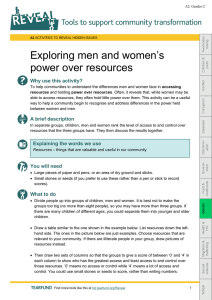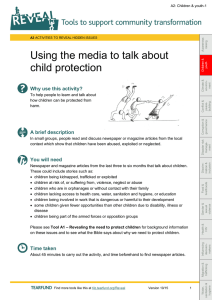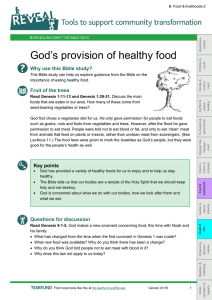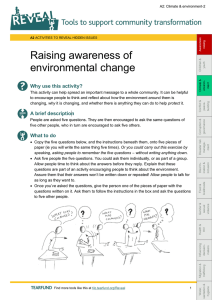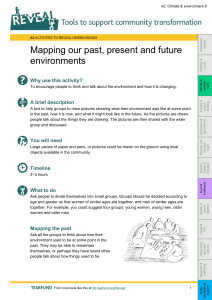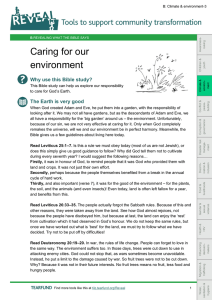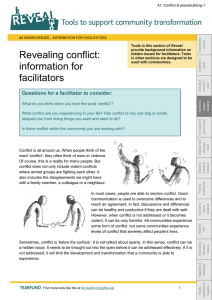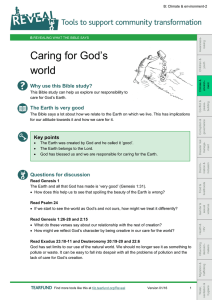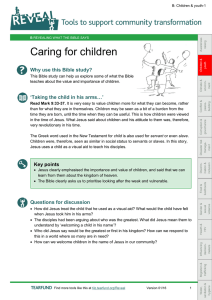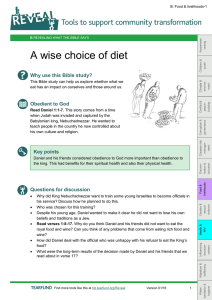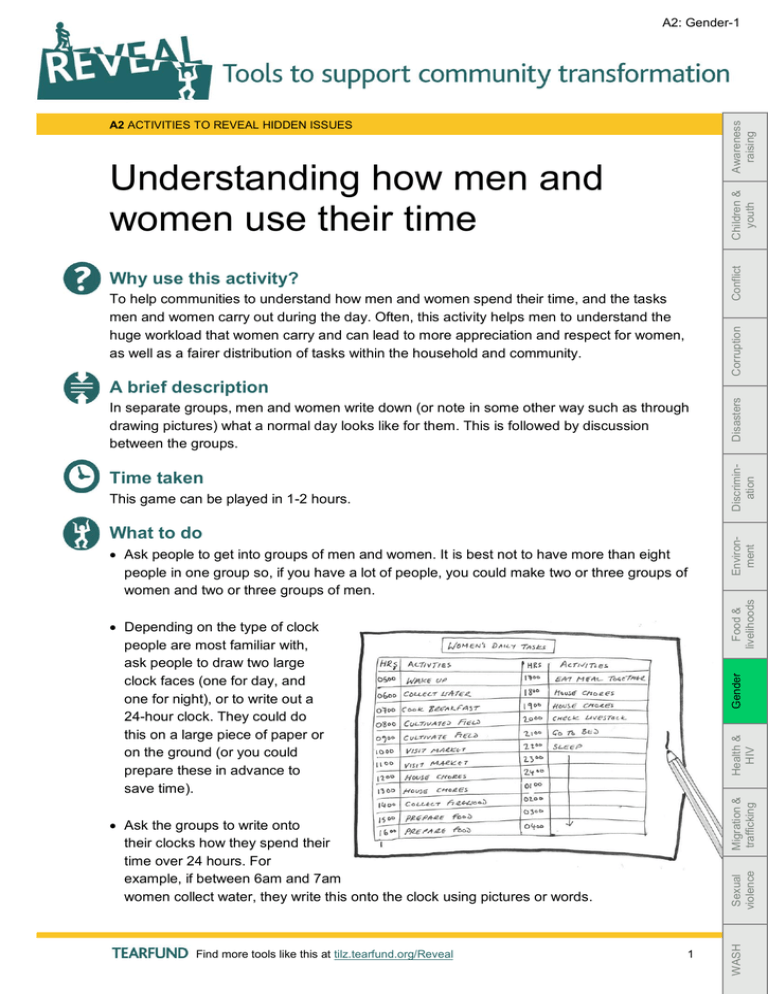
Awareness
raising
A2: Gender-1
A2 ACTIVITIES TO REVEAL HIDDEN ISSUES
Conflict
Children &
youth
Understanding how men and
women use their time
Why use this activity?
Corruption
To help communities to understand how men and women spend their time, and the tasks
men and women carry out during the day. Often, this activity helps men to understand the
huge workload that women carry and can lead to more appreciation and respect for women,
as well as a fairer distribution of tasks within the household and community.
Time taken
This game can be played in 1-2 hours.
What to do
Food &
livelihoods
Ask people to get into groups of men and women. It is best not to have more than eight
people in one group so, if you have a lot of people, you could make two or three groups of
women and two or three groups of men.
Migration &
trafficking
Health &
HIV
Gender
Depending on the type of clock
people are most familiar with,
ask people to draw two large
clock faces (one for day, and
one for night), or to write out a
24-hour clock. They could do
this on a large piece of paper or
on the ground (or you could
prepare these in advance to
save time).
1
WASH
Sexual
violence
Ask the groups to write onto
their clocks how they spend their
time over 24 hours. For
example, if between 6am and 7am
women collect water, they write this onto the clock using pictures or words.
Find more tools like this at tilz.tearfund.org/Reveal
Environment
Discrimination
In separate groups, men and women write down (or note in some other way such as through
drawing pictures) what a normal day looks like for them. This is followed by discussion
between the groups.
Disasters
A brief description
A2: Gender-1
A2 UNDERSTANDING HOW MEN AND WOMEN USE THEIR TIME
Awareness
raising
Ensure people write something down for every time ‘slot’. Ask the groups to include things
such as resting, sleeping and talking with friends, in addition to household chores, such as
cooking and cleaning, and work.
Children &
youth
Of course, the daily routine may change depending on the season. You could ask people
to focus on the current season or, if there is time, groups could carry out the task several
times, for the different seasons.
Conflict
Once all groups have finished, ask each group to nominate a spokesperson to explain their
clock to the other group(s).
Allow the groups to discuss their clocks with each other. You may want to use these
questions to help discussions:
Corruption
Disasters
o
o
o
o
o
o
o
o
o
o
Discrimination
Environment
o
Food &
livelihoods
o
Gender
o
o
What are the differences between the ways in which women and men spend their
time?
If the clocks show that women spend a lot more of their time doing work and chores
than men (even if these are unpaid): How do the men feel, seeing how much work
women carry out during the day?
Can and should anything be done differently?
Has this activity made men or women think that they want to change anything about
how they or the other groups use their time?
Health &
HIV
Finding out more
Tearfund (2007) Footsteps: Family life
http://tilz.tearfund.org/en/resources/publications/footsteps/footsteps_71-80/footsteps_72/
Migration &
trafficking
Sexual
violence
Related tools
A2 – Exploring men and women’s control over resources [A2: Gender-2]
B – God’s view of women (Bible study) [B: Gender-3]
B – God’s view of men (Bible study) [B: Gender-4]
B – Men, women and God (Bible study) [B: Gender-5]
WASH
Find more tools like this at tilz.tearfund.org/Reveal
2

